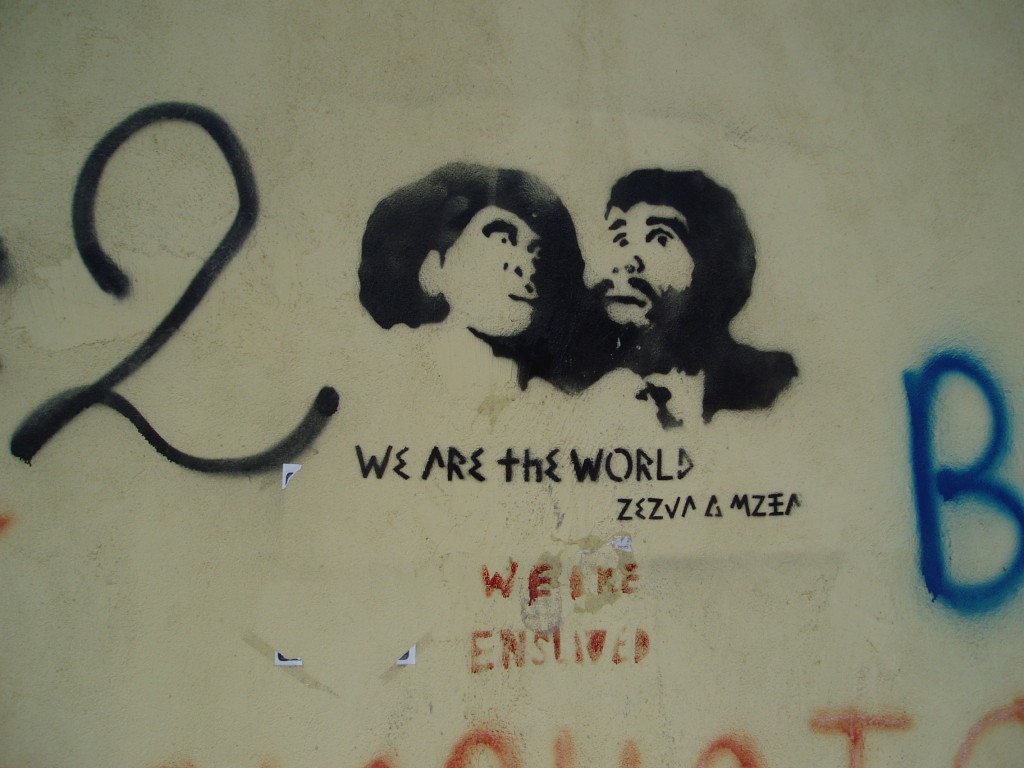Continuing my series on the top 10 reasons to enroll in Anthropology 207x (Introduction to Human Evolution), which officially begins on May 6th….
Previous entries:
#10 Origin stories are captivating. Scientific origin stories can be unifying.
#9 It’s open and free!
#8 Our evolutionary past informs how we understand human difference today
#7 You will be sharing the experience with 1000s of others
Reason 6 – Human evolution encompasses a fascinating set of questions, bringing together many different disciplines
What got me hooked on human evolution was my undergraduate senior thesis. I probably had a latent, National Geographic-inspired interest in the topic, but it was the effort of putting together that work that made me sure I wanted to go to grad school, get a Ph.D., and pursue this as a career.
My undergraduate thesis was a synthesis of literature on the question of whether or not the human species experienced a Late Pleistocene (~100-200 KYA) population bottleneck. On the surface, it seems a banal question. Did the human species get really small for a time during the ice ages? It turns out to be quite complex, though, and amenable to data and theory derived from lots of different sources. At the time, the mid/late ’90s, there was an emerging body of genetic literature on the topic. Groundbreaking work on mitochondrial DNA in the late ’80s and early ’90s had suggested the entire human species, or at least our mitochondrial DNA, had a relatively recent and narrow origin, someplace in Africa, sometime in the past 200,000 years. But a larger body of nuclear DNA data was just coming online, and those data were not quite so clear on this point. Much of my thesis was a review of this literature and grounded in my first voyage into population genetics theory.
But the topic expands into a whole host of other areas. What about the archaeological record? What can a widespread record of cultural change through time–some of it indicating continuity, some of it not–say about population history and our species origin? And doesn’t our understanding of subsistence foraging populations in the current and recent past inform these questions? And shouldn’t we ask questions about the paleoclimatic record in more detail? And don’t those lead into more complex ecological questions about specific habitat utilization? And don’t those questions lead back into questions about population dynamics, and back into that basic population genetics theory? And what about the whole host of related issues regarding human physiology, biological development, human plasticity, comparative nonhuman primate data, and on and on and on…
A brief perusal of the most recent issue of the Journal of Human Evolution reveals a similar diversity of topics:
* Stable isotope paleoecology of Late Pleistocene Middle Stone Age humans from the Lake Victoria basin, Kenya
* Spatial and temporal variation of body size among early Homo
* A geometric morphometrics comparative analysis of Neandertal humeri (epiphyses-fused) from the El Sidrón cave site
* The Neanderthal in the karst: First dating, morphometric, and paleogenetic data on the fossil skeleton from Altamura
* The lithic industry of Sima del Elefante (Atapuerca, Burgos, Spain)
* Dental eruption in East African wild chimpanzees
* Do bimanual coordination, tool use, and body posture contribute equally to hand preferences in bonobos?
The point being, human evolution is fascinating because it is a set of complex questions. As a paleoanthropologist, you are arriving on the scene of an investigation not knowing who the characters were involved, what happened, and how the events preceded. But you know something happened, otherwise you (and more broadly, we, as a species) wouldn’t be who you are today. Against these odds, though, are the many different lines of evidence that inform our understanding of the past. As an anthropologist first and foremost, I am naturally pre-disposed to enjoy this kind of interdisciplinary admixture. And hopefully you will, too…
I will have additional updates each day between now and May 6, when the course goes live.

